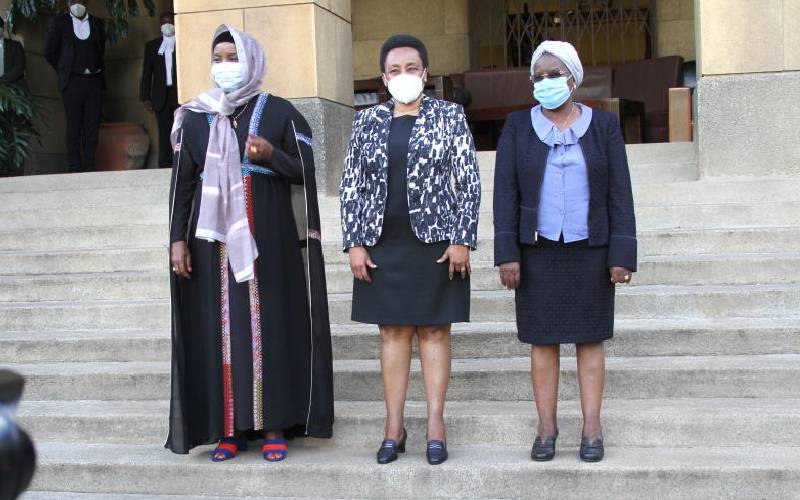×
The Standard e-Paper
Join Thousands Daily

Judge Philomena Mwilu has sworn into office two women as commissioners with the National Land Commission (NLC) in her first public assignment as acting Chief Justice.
Mwilu, who took charge of the Judiciary on December 12 after the CJ David Maraga proceeded on leave ahead of his retirement, presided over the ceremony in which he advised the new commissioners to discharge their duties with integrity.